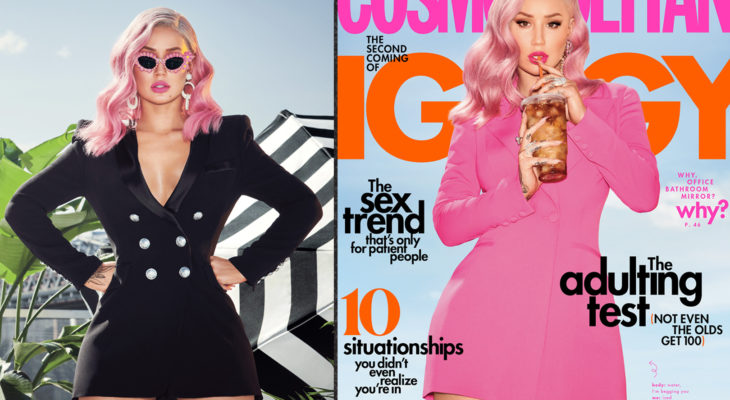
Iggy Azalea’s unbothered by your cultural appropriation accusations.
Iggy Azalea’s latest tape In My Defense dropped off last month after she was forced to re-record her project due to an unrecoverable hard drive. The move was just another reason that proved how Iggy doesn’t give up when it comes to career and she discussed the latter among other things in her recent Cosmopolitan magazine feature.
During a recent interview with Cosmopolitan, the 29-year-old Australian rapper addressed her polarizing place in hip-hop as well those who claim her career was built on mimicry. But it appears Iggy is no longer worried about this type criticism, as she believes the concept of cultural appropriation is subjective.
“You could ask one person of the same race, ‘Does this affect you?’ and they will say yes,” she told the magazine. “You could ask one person of the same race, ‘Does this affect you?’ and they will say yes. But another person will say no. They could be from the same place, same everything, but have different perspectives about it.”
In the years since she broke into the mainstream, Iggy has faced constant criticism for the way she dresses, speaks, and creates music. Many have questioned the authenticity of her image, while others have accused her of using “blackness” (regardless of how ignorant that may sound) to propel her career.
In the interview, Iggy insisted she was not going to apologize for simply being herself. “I’m still going to make the same type of music and still be ridiculous and larger than life,” she said. “So I can’t be that fucking sorry about it.”
But make no mistake, Iggy isn’t dismissing the criticism; though she admits the cultural appropriation issue was once a touchy subject for her.
“I would hit back and say, ‘What about this that I had to go through?’ because I wanted to talk so much about my experiences of things I didn’t have, and I think it felt like I wasn’t acknowledging that there is white privilege and there is institutionalized racism,” she said. “It seemed to a lot of people like I was living in this bubble or unaware of all these things that people have to experience.”

